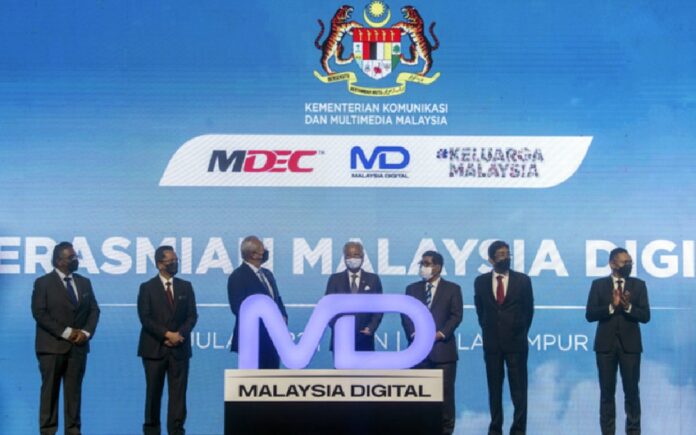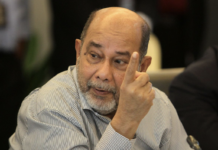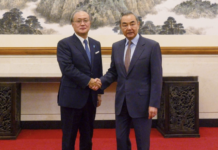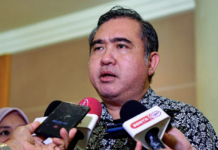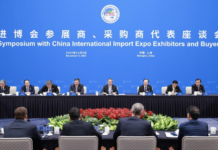KUALA LUMPUR, July 4 — The government has developed Malaysia Digital (MD), an initiative to accelerate the growth of the nation’s digital economy, driven by three key principles — flexibility, agility and relevance.
Prime Minister Datuk Seri Ismail Sabri Yaakob said the initiative, via MD Catalytic Programmes (PEMANGKIN), will function holistically in transforming Malaysia’s digital economy ecosystem through three strategic priorities.
“It will, firstly, help drive digital adoption among aspiring young entrepreneurs, companies and people; secondly, support local tech companies to become ‘Malaysian Champions’ and successful international players; and, thirdly, attract high-value digital investments,” he said when launching MD and the Malaysia Digital Economy Corporation (MDEC) silver jubilee celebration here today.
Also present was Communications and Multimedia Minister Tan Sri Annuar Musa.
Ismail Sabri said the government will initially introduce two PEMANGKIN, namely the DE Rantau dan Digital Trade programmes.
He said DE Rantau is a programme to boost digital adoption and promote professional mobility as well as drive tourism across the country, with the goal to establish Malaysia as the preferred Digital Nomad Hub.
“Digital nomad activities in the country will have spillover effects beyond just reviving the tourism sector which has been adversely impacted by the pandemic.
“In fact, it will stimulate local business and economic activities as well as providing opportunities for the sharing of knowledge and experience with local communities,” he said.
Meanwhile, Digital Trade will drive e-commerce and digital adoption by businesses, facilitate cross-border trade, and support data exchange between businesses to boost efficiency, accuracy and credibility of cross-sector and cross-industry transactions.
He also said that through Malaysia’s participation in the Regional Comprehensive Economic Partnership (RCEP), the programme will facilitate a wider reach in the global market and hence bring great benefits to local businesses, especially the micro, small and medium enterprises (MSMEs).
Meanwhile, Ismail Sabri said that to ensure the impactful implementation of MD, the Cabinet has agreed for the Communications and Multimedia Ministry to establish the Malaysia Digital Coordination Committee (MD-CC), which will coordinate MD’s governance and operations, including awarding the MD status to companies.
He also urged MDEC to create a dedicated platform for the industry players to participate continuously and give valuable feedback during MD’s implementation.
“I am confident that through the collaboration and consensus among the various parties, the MD initiative will be able to be implemented successfully, and the government will give its full attention to enable MD’s smooth implementation,” he said.
He said the governance and strategic implementation of MD will be coordinated at the highest levels of government and there will be monitoring and improvements made from time to time.
Ismail Sabri also said the country needs to create a more competitive digital workforce and comprehensive infrastructure, as well as to continue ensuring the nation’s capability and capacity remain world-class.
This, he said, is crucial to enable the future generation to have the necessary foundation and facilities to continue driving the nation towards becoming a developed digital nation.
At the same function, the prime minister announced that the government has awarded the MD status to the first batch of six companies, namely Bytedance System Sdn Bhd, Bridge Data Centres Malaysia (III) Sdn Bhd, GDS IDC Services (M) Sdn Bhd, Abbott Laboratories (M) Sdn Bhd, Aceteam Connect Sdn Bhd, and Peninsula Apex Technologies Sdn Bhd.




